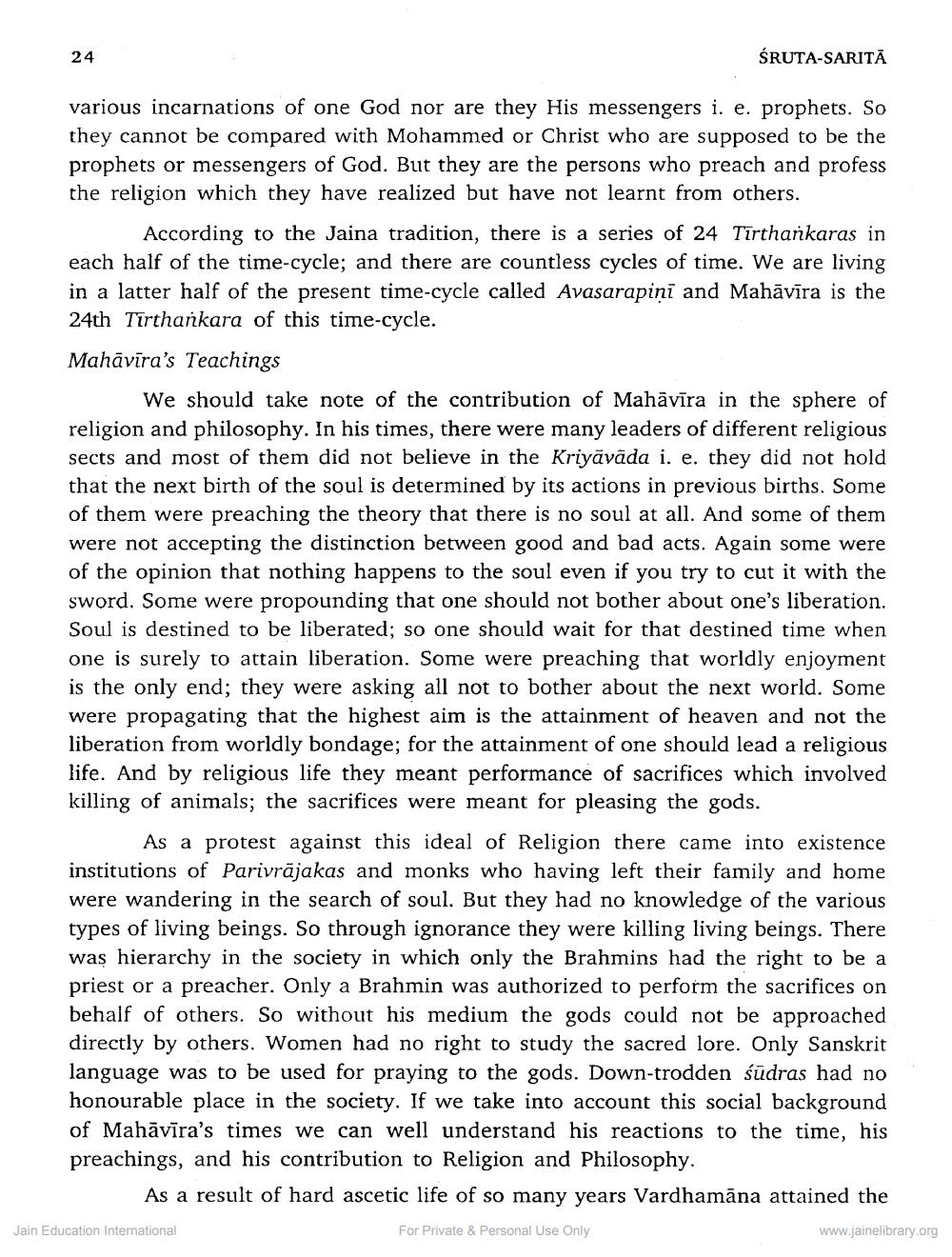________________
24
ŚRUTA-SARITĀ
various incarnations of one God nor are they His messengers i. e. prophets. So they cannot be compared with Mohammed or Christ who are supposed to be the prophets or messengers of God. But they are the persons who preach and profess the religion which they have realized but have not learnt from others.
According to the Jaina tradition, there is a series of 24 Tirthankaras in each half of the time-cycle; and there are countless cycles of time. We are living in a latter half of the present time-cycle called Avasarapini and Mahāvīra is the 24th Tirtharkara of this time-cycle.
Mahāvīra's Teachings
We should take note of the contribution of Mahāvīra in the sphere of religion and philosophy. In his times, there were many leaders of different religious sects and most of them did not believe in the Kriyāvāda i. e. they did not hold that the next birth of the soul is determined by its actions in previous births. Some of them were preaching the theory that there is no soul at all. And some of them were not accepting the distinction between good and bad acts. Again some were of the opinion that nothing happens to the soul even if you try to cut it with the sword. Some were propounding that one should not bother about one's liberation. Soul is destined to be liberated; so one should wait for that destined time when one is surely to attain liberation. Some were preaching that worldly enjoyment is the only end; they were asking all not to bother about the next world. Some were propagating that the highest aim is the attainment of heaven and not the liberation from worldly bondage; for the attainment of one should lead a religious life. And by religious life they meant performance of sacrifices which involved killing of animals; the sacrifices were meant for pleasing the gods.
As a protest against this ideal of Religion there came into existence institutions of Parivrājakas and monks who having left their family and home were wandering in the search of soul. But they had no knowledge of the various types of living beings. So through ignorance they were killing living beings. There was hierarchy in the society in which only the Brahmins had the right to be a priest or a preacher. Only a Brahmin was authorized to perform the sacrifices on behalf of others. So without his medium the gods could not be approached directly by others. Women had no right to study the sacred lore. Only Sanskrit language was to be used for praying to the gods. Down-trodden sūdras had no honourable place in the society. If we take into account this social background of Mahāvīra's times we can well understand his reactions to the time, his preachings, and his contribution to Religion and Philosophy.
As a result of hard ascetic life of so many years Vardhamāna attained the
Jain Education International
For Private & Personal Use Only
www.jainelibrary.org




